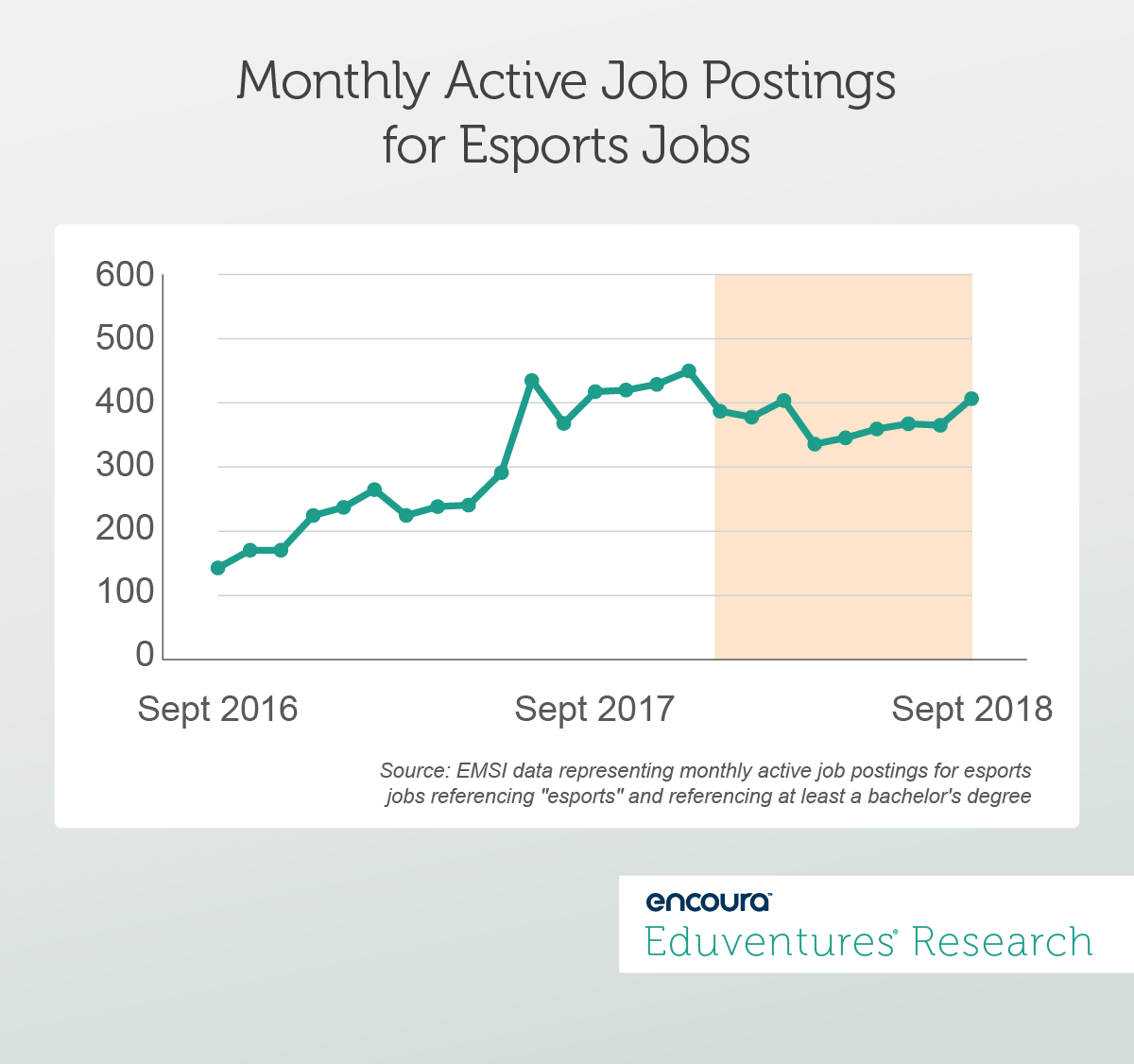The surge in esports (a.k.a. competitive video gaming) has officially transferred off of the couch and onto campus. Over the past year, several institutions have embraced extracurricular activities focused on esports. Others are even bringing esports into the classroom, developing specific academic programs to capitalize on recent enthusiasm for the pastime.
Given the popularity of esports, your institution may also be considering how it can jump into the fray.
Institutions such as Ashland University have reported outsized enrollment bumps as a result of investing in varsity or intramural esports programs. Organizations like the National Association of Collegiate Esports have partnered with over 120 institutions and last year saw the creation of the Ivy esports conference. In another step toward taming the largely unregulated esports world, the National Collegiate Athletics Association has announced that it has started to research the field.
Leaders at institutions with extracurricular esports programs have painted a rosy picture of what is typically thought of as a pixilated pastime, emphasizing the positive impacts on enrollment and student success that can result from a well-run esports program. Esports teams, they say, assist students in finding a sense of belonging and that ever-important feeling of fit on campus through a community of likeminded peers. What’s more, esports coaches can also serve as mentors and advisors to students, not only on a virtual battlefield but throughout their students’ journeys.
For the enrollment and student affairs offices, esports seems like a good thing, but what about as an academic endeavor?
Esports in the Classroom
Across domestic higher education, institutions have created some 34,500 new degree programs of all stripes between 2012 and 2016 to entice prospective students and personalize the learning experience. Given its recent success as an extracurricular and predicted multibillion dollar growth, some institutions are banking on the opportunity to offer academic offerings focused on the burgeoning esports industry. Several prominent institutions have announced that they will be integrating the business of esports into their curriculums. University of California, Irvine—in close proximity to many gaming and entertainment companies—offers an esports management certificate. University of Texas, Arlington, as well as The Ohio State University, have reported the development of academic programs focused on esports for both degrees and certificates. Syracuse University has partnered with esports social streaming service, Twitch, to offer an esports course in its Newhouse School of Public Communications. Additionally, Becker College launched a Bachelor of Science in Esports Management last year, making the central Massachusetts institution the first in the U.S. to join a small but growing global cohort of higher education institutions offering esport management degrees. While esports is no cybersecurity in terms of industry scale and potential for job growth, prospective students appear to have more opportunity than ever before to explore career paths in the field. But is there really a thriving market for esports degrees and careers? If so, what types of skills would students need? While the Bureau of Labor Statistics may not be able to accurately reflect the number of jobs within newer career fields that do not yet have their own standard occupational codes, a scan of job postings can unearth cursory findings that may hint at the health of nascent career fields. A national review of job postings that reference esports and a bachelor’s level of education indicates that the market for esports jobs, despite reports of an industry in growth mode, may still be quite small—with some 1,400 (of 40 million total) unique jobs being posted across the country from January to September 2018.
The Bottom Line
Extracurricular esports teams and activities appear to be appealing to many prospective students and are being developed across the country at every type of institution—from small regional privates, to flagship publics, to Ivy Leagues. These programs are helping some institutions recruit students and meet enrollment goals. If effectively administered as a part of the student experience in intramurals or even varsity sports, it can also be a positive element of undergraduate education; perhaps even a source for scholarship dollars for top esports athletes. While the career outlook for esports has grown over the last two years, its size remains relatively small and focused on skills related to programing and business rather than those specific to the industry. While it has certainly gained popularity and grown as a business in recent years, higher education institutions should be wary about the potential return on investment of adding an academic esports program. Those who can be first to market with strong programs that have direct ties to the esports industry, along with an interdisciplinary curriculum in such fields as computer science and business, will likely be most successful. Laggards and those who can’t effectively skill-up students, however, may be left with empty desks and lower enrollments. Knowing what students care about when they are making their final enrollment decisions is vital to creating a relevant yield strategy. As we look around the corner to Fall 2019 admitted freshmen, now is a great time to learn how specific types of admitted students make their decisions. Doing so will allow you to refine and tailor your next recruitment cycle and yield strategy to meet your goals. This webinar will cover highlights from Eduventures® Survey of Admitted Students™, an annual study that collects data from more than 100,000 admitted students to help colleges and universities design effective yield strategies. Insights from this webinar will help you to:- Identify key student Decision Segments™
- Understand where non-enrolling students actually did enroll and why
- Better assess and respond to the competitive landscape

